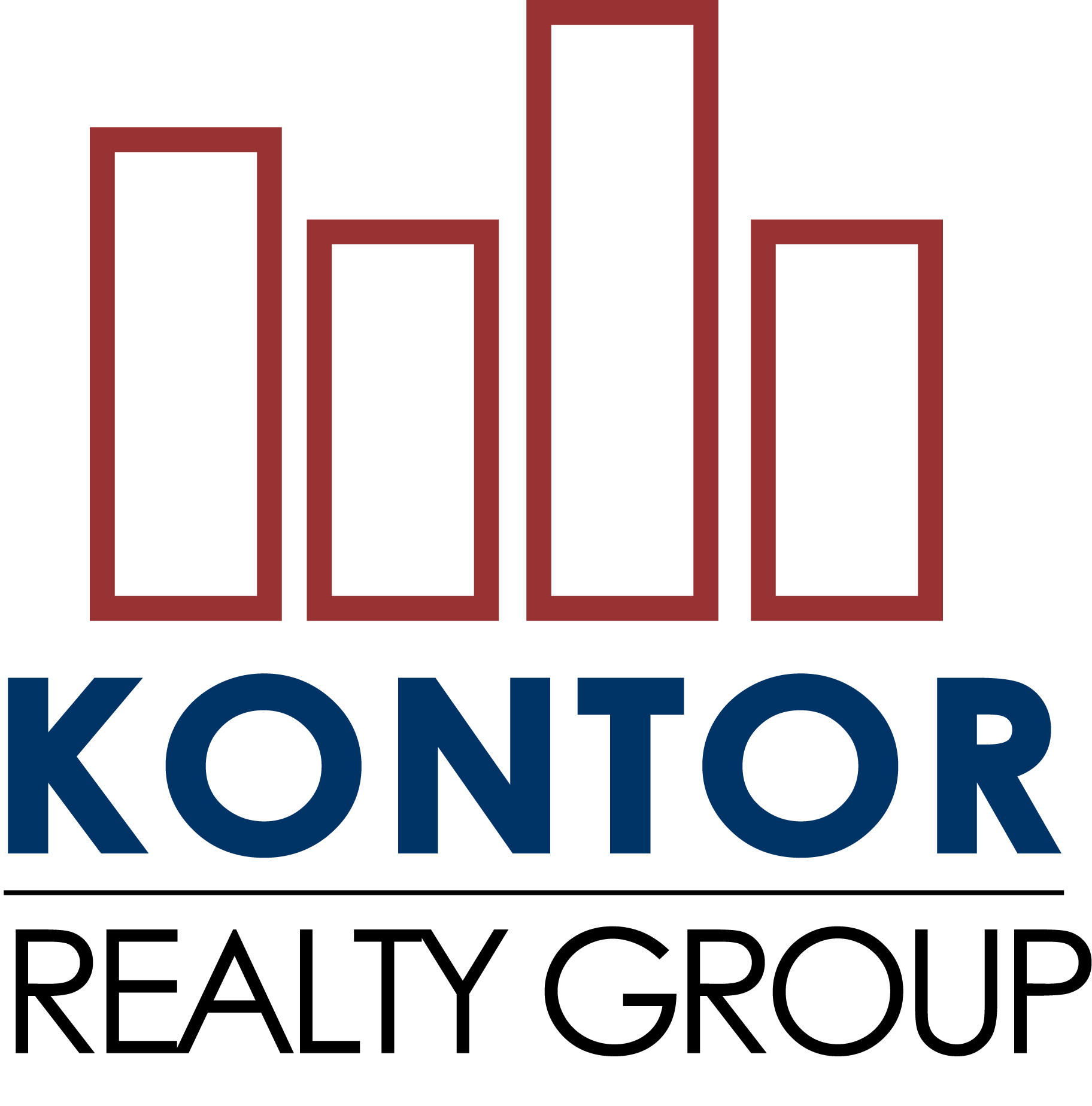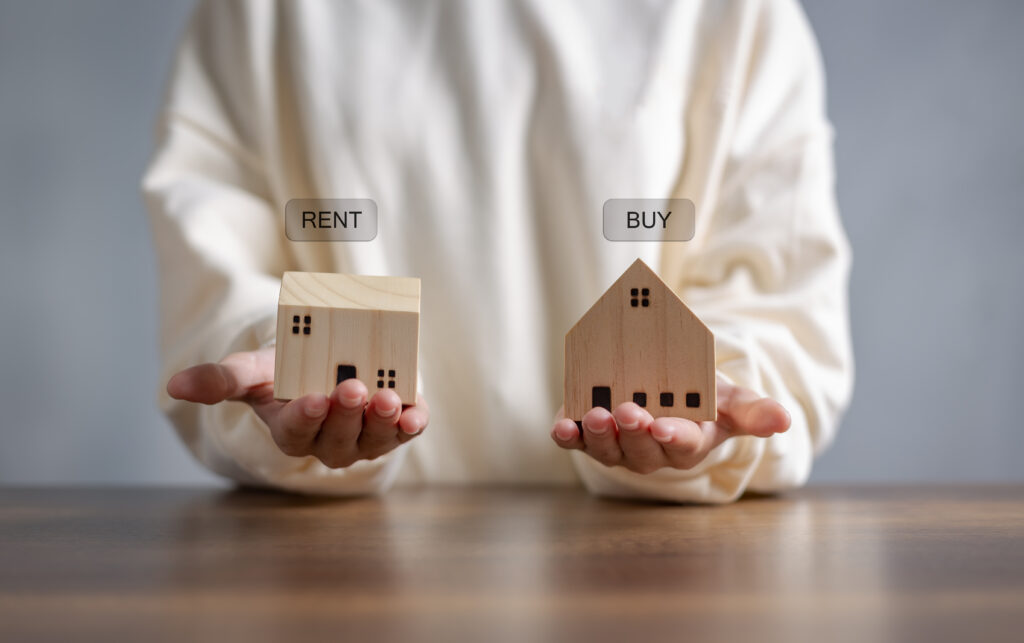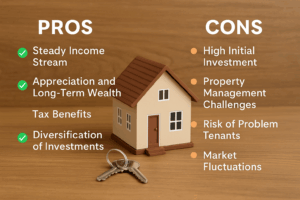When considering the options for housing, one of the most significant decisions individuals face is whether to buy a home or rent a property. This choice can have far-reaching implications for financial stability, lifestyle flexibility, and future plans. In this blog post, we will explore various aspects of both buying and renting, delving into the pros and cons of each option to help you make an informed decision.
Financial Implications
Buying a Home
Purchasing a home is often seen as an investment. The value of real estate tends to appreciate over time, which means that buyers can build equity. When you buy a home, every mortgage payment contributes to your ownership stake in an asset that can grow in value. Additionally, homeowners can benefit from tax deductions on mortgage interest and property taxes, providing further financial advantages.
However, it’s essential to consider the upfront costs of buying a home. The expenses can include a down payment, closing costs, home inspections, and moving costs. Moreover, homeowners are also responsible for ongoing expenses such as property taxes, homeowner’s insurance, and maintenance costs. These can add up significantly over time and should be factored into your decision-making process.
Renting a Home
On the other hand, renting typically requires a smaller upfront financial commitment. Most rental agreements require only a first month’s rent and a security deposit. This makes renting an appealing option for those who may not have the savings readily available to make a substantial down payment.
While renters do not build equity as homeowners do, they often have more predictable monthly expenses. Renters typically pay a set rent each month and may have fewer responsibilities regarding maintenance and repairs, as these duties typically fall to the landlord. This can provide a sense of financial stability in a fluctuating market.
Flexibility and Lifestyle
Buying a Home
Homeownership often ties individuals to a specific location, which can be seen as both a benefit and a drawback. For those who value stability and long-term commitment, buying a home can offer a sense of community and belonging. Homeowners have the freedom to personalize their space, from renovations to landscaping, which can foster a deeper connection to their property.
However, for individuals who may need to relocate for career advancement or personal reasons, selling a home can be a lengthy and complex process. The housing market can influence your ability to sell quickly or at a desirable price, making it sometimes difficult to achieve the same level of flexibility that renting allows.
Renting a Home
Renting offers unparalleled flexibility, making it ideal for those who may move frequently or are uncertain about their long-term plans. Lease agreements typically range from one year to month-to-month options, allowing renters to extend or withdraw their commitments based on changing circumstances.
This flexibility can be especially valuable for young professionals or individuals in transitional life stages, such as recent graduates, those starting new careers, or individuals in the military. Renters can choose to live in various neighborhoods without the long-term commitment of buying, providing the chance to explore different communities and lifestyles.
Maintenance and Responsibilities
Buying a Home
Owning a home comes with the responsibility of maintaining the property. This includes everything from routine upkeep like lawn care and cleaning to significant repairs like roof replacement or plumbing issues. While these responsibilities can empower homeowners and help them invest in their property, they can also present a financial burden and take time and effort.
For many, the ability to customize and improve their home can be a gratifying aspect of ownership. However, uncertainty in home maintenance can lead to unexpected costs, creating potential stress.
Renting a Home
Renters typically have less responsibility for maintenance and repairs, which is often the landlord’s obligation. This can lead to a more carefree living situation, where tenants can quickly report issues such as leaky faucets or broken appliances to their landlord for resolution.
Nonetheless, this arrangement can sometimes lead to frustrations over slow response times for repairs or limited ability to make changes to the living space. Renters may feel a lack of control over their environment, as they have to abide by the terms set by the owner.
Long-Term Goals
When embarking on the journey of buying or renting, it’s crucial to consider your long-term goals. Individuals looking to establish roots and build a future in one location may find homeownership appealing. The benefits of building equity, tax advantages, and the emotional satisfaction of owning a home can make it a rewarding long-term investment.
Conversely, those prioritizing mobility or uncertain about future commitments may lean towards renting. Rentals can allow for easier transitions and less financial pressure, which can be vital in dynamic career paths or personal situations.
Ultimately, the choice between buying and renting a home is highly personal and contingent upon various factors, including financial situation, lifestyle preferences, and long-term goals. Both options come with their respective advantages and challenges, and it’s essential to weigh these against your unique circumstances. By considering your priorities, you can make a decision that aligns with your current needs and future aspirations. Whether you choose to invest in a home or enjoy the flexibility of renting, careful consideration will pave the way for a satisfying living arrangement tailored to your lifestyle.




